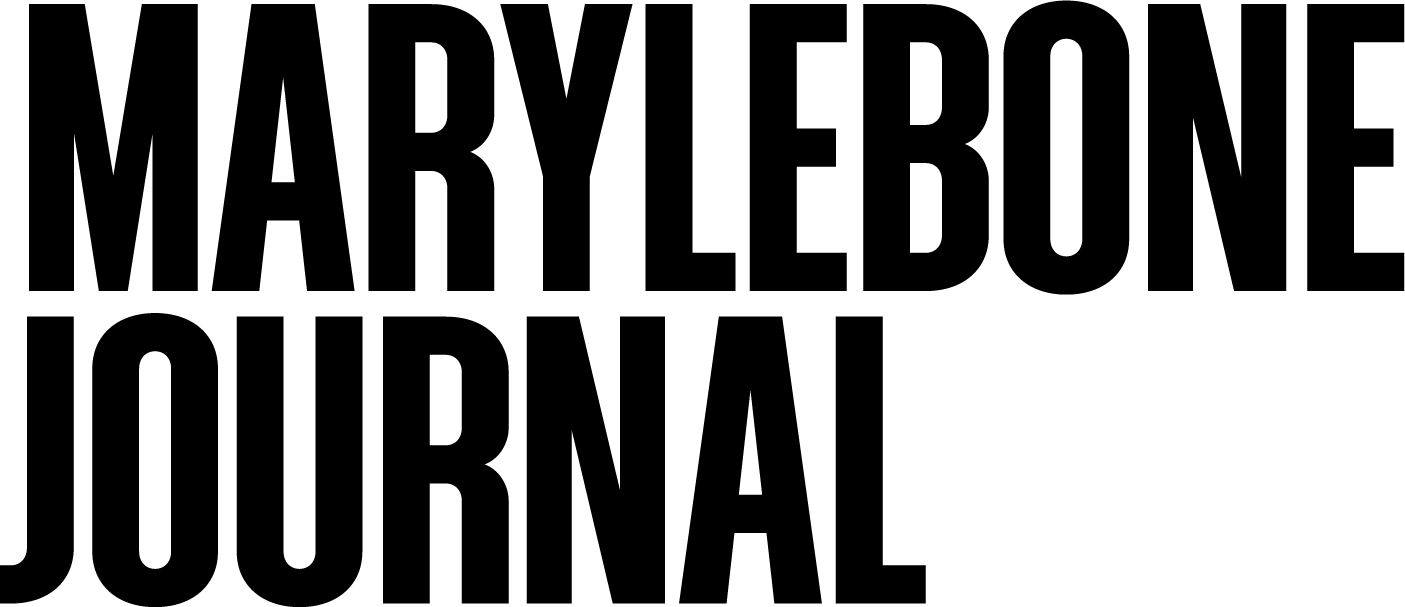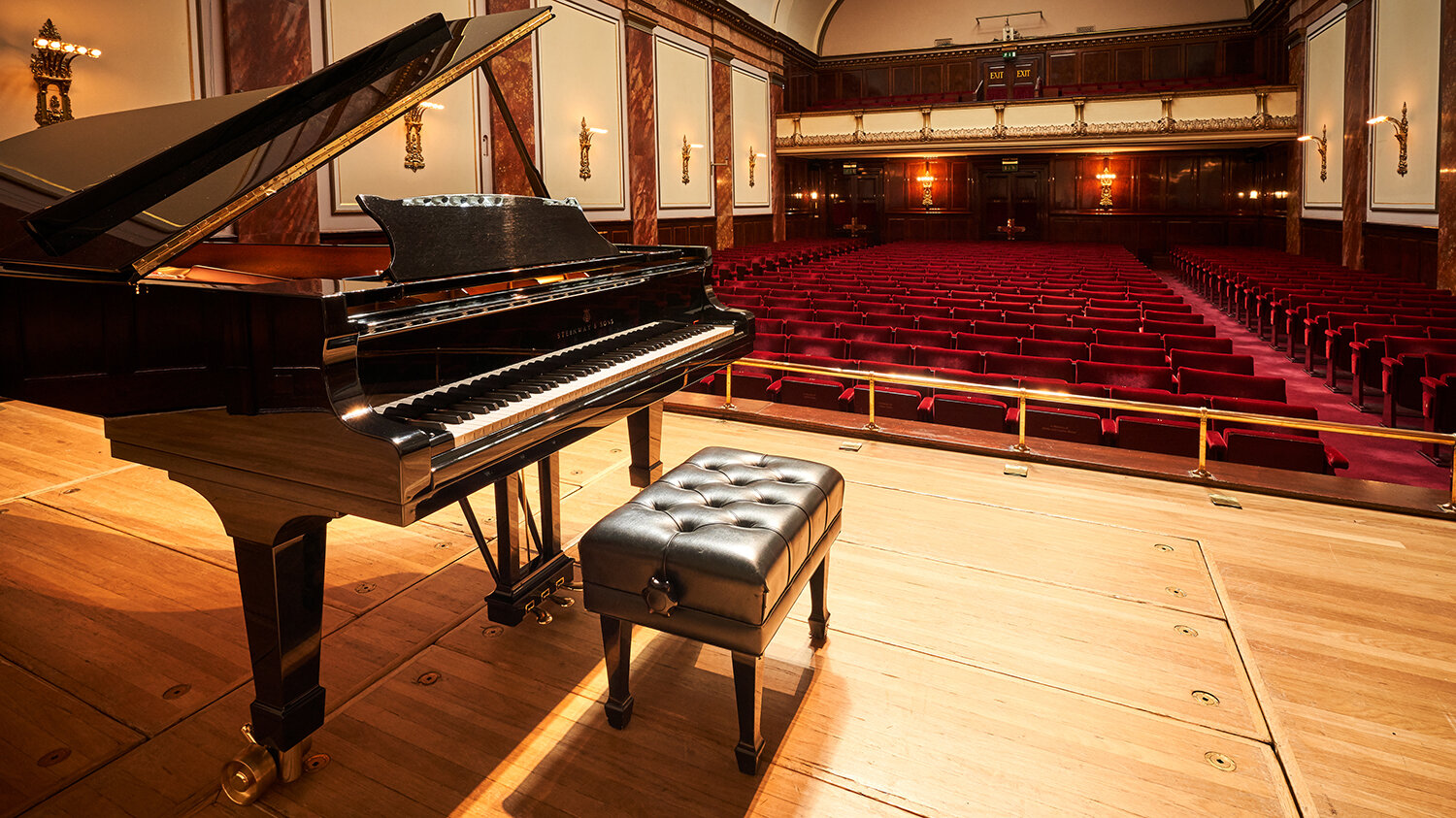Once more, with feeling
The director of Wigmore Hall, John Gilhooly, talks to the Journal about staying positive through the Covid crisis, enhancing the diversity of the venue’s programming and audience, and the importance of questioning everything
Words: Ellie Costigan
Portrait: Kaupo Kikkas
“There’s no point in looking backwards. We’ve got to keep looking forward,” says John Gilhooly, the director of Wigmore Hall. It’s a statement that neatly summarises his progressive approach to battling the impacts of coronavirus (“anybody who thinks we have had a soft landing is completely misinformed,” he continues). It also stands up as a synopsis of his entire 15-year spell at the helm of this famous institution, through which his ambition and passion have rung as clear as the Hall’s famous acoustics.
An ordinary year would see Wigmore Hall play host to around 500 concerts, featuring both world-renowned and emerging artists, as well as an extensive learning and outreach programme—perhaps the most obvious manifestation of John’s desire to engage with a much broader demographic than might traditionally be associated with the world of classical music—which includes laying on sessions for families, for people living with dementia, and for young people with autism spectrum conditions. This year has looked a bit different, for very obvious reasons. But through it all, John has been determined to embrace “the spirit of being positive”, doing everything he can to keep the music flowing. As early as June, the venue began live-streaming concerts from an empty hall, with the musicians alone on the stage and the most skeletal of technical crews on hand to manage the broadcast. The current 100-concert season, playing out (at the time of writing) to a small audience in the hall and streamed free of charge to thousands more, is, in the circumstance, hugely impressive in its scale and ambition. It’s an approach that has brought much-needed relief to musicians whose income depends upon a thriving international touring circuit. “Some of the people we’ve given work to hadn’t worked for six months,” says John. “The higher-level artists were just about okay, because they had savings. But junior artists, young artists, didn’t qualify for furlough or any of the established social welfare routes.”
Unpredictable and often last-minute travel bans and local lockdowns have made programme planning incredibly tricky. For every artist booked from abroad, Wigmore Hall currently has a second on standby. “We are constantly trying to keep up with the regulations, looking at international travel and quarantine and who can get here and who can’t,” says John. “There’s a lot of last-minute replacement programming.” Sensibly, many of the artists scheduled to perform in the Hall’s autumn season are UK-based. But while it is limited geographically, the breadth and depth of the programme is even more impressive than ever.
The coronavirus has dominated the conversation in 2020, but the underrepresentation of ethnic minorities has also been high on the agenda. Improving diversity within both the programme and audiences of Wigmore Hall has been a priority for John for some time—indeed, prior to lockdown, he had signed off a five-year diversity strategy—but one of the few tangible benefits of the Covid disruption has been the opportunity it provided for accelerating that change. “What we’re doing is not actually a direct reaction to Black Lives Matter, it was going to happen anyway, but because there was such scope to do things at the last minute, I was able to draw into the autumn programme things that I might’ve done in 18 months’ time,” he explains.
John Gilhooly
A sudden resurgence
The first week of the new season featured music from Julius Eastman, a black, gay composer who lived in New York in the 1990s. “He was dismissed as a human being in many ways. He was forgotten. But there’s a sudden resurgence in his music and rediscovery of it in the last few years, so I was able to put in his work Feminine, which is his reaction as a black gay man to the politics of the 1970s and 80s and exclusion. It was an exceptional concert; it got a five-star review from The Times.” Golda Schultz, the South African soprano who performed at this year’s Last Night of the Proms, also took to the stage in October, along with another world-class black soprano, Elizabeth Llewellyn. “She’s a magnificent singer—beautiful, really moving. She’s an incredible interpreter. Part of her programme was Samuel Coleridge-Taylor, who was a black composer who lived here in London. He was very, very famous in the decade right before his death in 1912, throughout the UK and internationally. We wanted to bring some of his wonderful songs into a programme.”
Acclaimed double bassist Leon Bosch, who at the age of 18 years old was imprisoned in his native South Africa for his anti-apartheid activism, recorded a powerful documentary on the Hall’s stage, talking about his life and work. “He has worked with all the world’s leading musicians but the most sobering thing he said was that until quite recently, and perhaps even still, when he’s with a band or an orchestra walking into an official function, they often point him towards the tradesman’s entrance. That sort of thing happened and is still happening because of the colour of somebody’s skin, even if you are a great musician and renowned for your work,” John laments. “Nobody in our profession is really a household name or world famous, but the fact that somebody would think a person was not part of the band just because of their lineage... Clearly there’s work to be done.”
As well as race, John is determined to address disparities based on gender, disability and sexuality. “I’m looking at diversity in every sense,” he says. “I can think of famous female composers in the early 20th century who entered competitions in the UK under a male name, because they wouldn’t win it otherwise. Those days have gone, but some of these attitudes prevail.”
Impressive audiences
Other positives have also come out of lockdown. Livestreamed concerts—as well as regular broadcasts on BBC Radio 3—have drawn impressive audiences, in some instances hitting millions of views internationally. “The fact that we can put some of these things on the internet is giving them a life beyond our walls. Some of the younger artists are making their debut—we’ve had young trumpeters and trombonists and all sorts in the past few weeks—and they would never have had this exposure if it was just a normal concert. So while, a lot of what’s going on is heartbreaking, there are some positives.”
The Hall, which next year celebrates its 120th anniversary, has over the years garnered a fiercely loyal following, as well as a reputation for quality. People might come to the Hall to see a well-known or much-loved artist, but often they return to see something new. “There’s a quality threshold, even in lockdown,” says John. “In the next few months, if somebody cancels and I can’t replace them with somebody equally good, we will go dark. It’s much better to take a night off than programme something that’s not up to standard—that’s when you start to lose trust, and that’s when people won’t take the risk. My reputation as an artistic director is on the line and the Hall’s reputation is on the line if I start programming rubbish. That’s something that even in these desperate times, you cannot do.”
The longevity of the free livestreaming service is questionable, (“we are first out of the traps in many ways and everybody else is going to follow us now, which means there might at some point be saturation in terms of the amount of music available online”) but in those long months of early lockdown—and indeed, continually for those who remain cautious about leaving their homes—they’ve provided a lifeline. “Somebody I spoke to earlier today, who used to be here all the time, told me his wife had a stroke in lockdown but they’ve been watching us all the time, twice a day at the moment, and they feel connected.” The Hall’s outreach and learning programme, which has continued, albeit in a reduced and virtual format, has proved similarly invaluable. “One of the things that really opened my eyes was that we work a lot with families and women who have suffered domestic violence and who maybe have left home as a result. That work had to stop for a little while, but we’ve been able to reengage with them and just looking at the feedback from those women and their children... it’s quite moving.”
Generosity of the public
It keeps him going, despite the huge amount of energy it takes from all at the Hall to keep it up, not just the streaming service and ever-changing programme, but the gargantuan effort that goes into fundraising. They have their fingers crossed for an emergency fund from the Arts Council, but otherwise are reliant on the generosity of the public. “It takes 10, 15 years to build relationships. If somebody gives you 100 grand it doesn’t just fall from the sky; that is usually somebody that you’ve cultivated, who trusts you, who sees what you’re doing and believes you’re worth saving—who sees that we will have proper governance and due diligence and all that sort of thing. That’s very important,” says John. “It’s a huge process to get to that level of competence and also the amount of writing that you’ve got to do, in terms of preparing a proposal, showing your financial need and showing how this is not just a stopgap, how it will actually inform a sustainable future from donors—that’s really hard. We’ve got to come up with all those arguments now. It’s not easy.”
The payoff is getting a letter from a 14-year-old girl telling him she’s discovered music, thanks to Wigmore Hall; the person whose wife or husband found joy in their final days by listening to the venue’s music; paying artists a proper fee when they’ve had no income for months. “At the moment, that’s what drives me,” says John. “I love the music—you couldn’t do this if you didn’t love the music. And I really love Marylebone: the high street, St James’s Spanish Place. I love everything around here. But there’s also an international Wigmore community, the connections with whom have been strengthened through sharing experiences with colleagues in Vienna or Berlin or New York; sharing our failures and our successes and sharing tips about how to get through this.”
Ever the optimist, when asked if he can possibly predict the future, John’s answer is characteristically positive. “In a way, this will bring about a sense of renewal—a refreshing of things. There were industry norms in classical music that I think were never questioned, because they were too sacred to question. Do we always need an interval? Is a seven o’clock start better? Should concerts be shorter? How do we make people who’ve never been here before feel more welcome? How do we convert those who are visiting us virtually into real visitors when we hopefully re-open to full houses?” he ponders. “I think it’s a good idea to keep questioning.”


